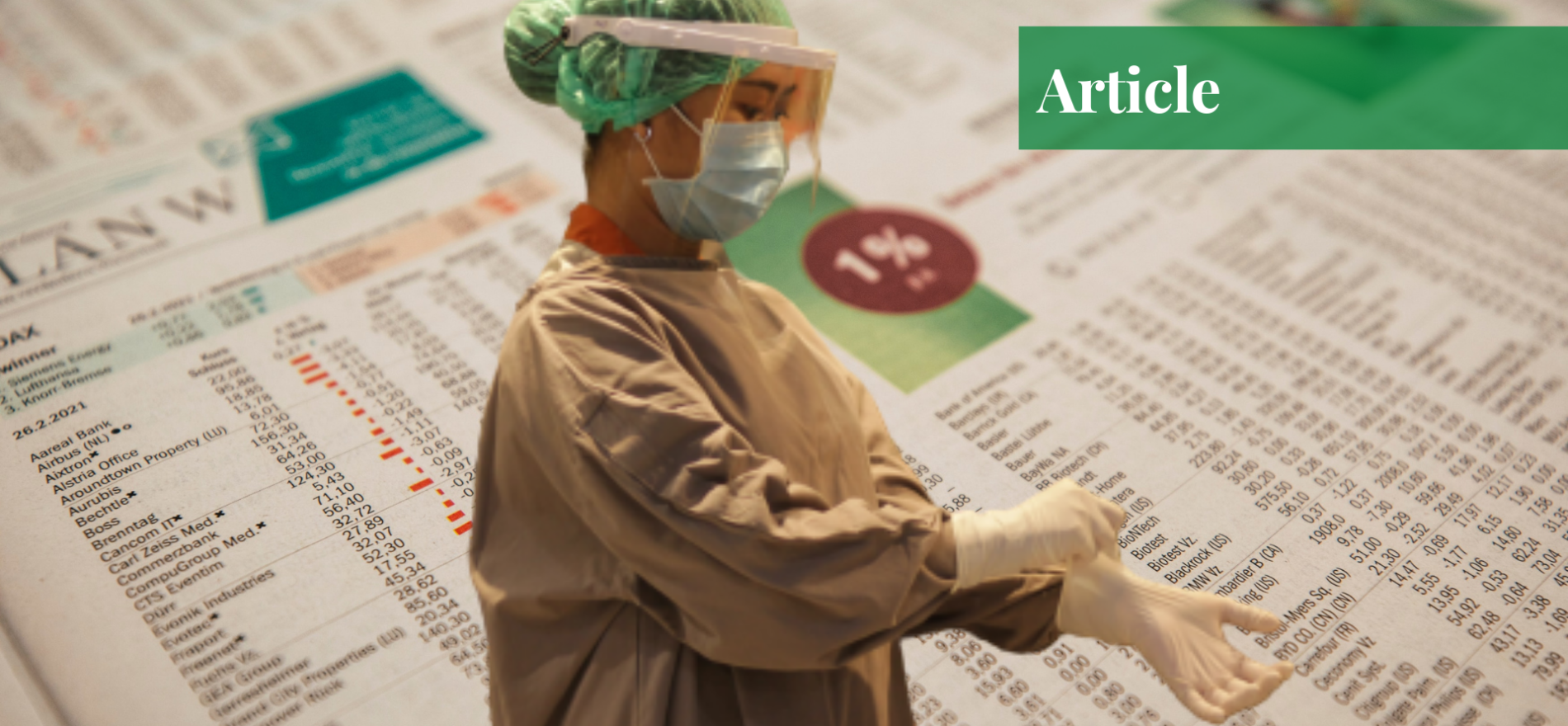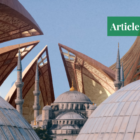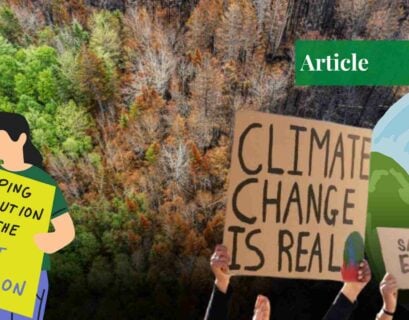Ms Ayesha Zafar is currently pursuing her Bachelor's in International Relations from National Defence University, Islamabad. She has authored multiple academic publications including research articles and book chapters. Her areas of interest include Middle Eastern politics, the geopolitics of Central Asia, and the Indo-Pacific region
Collapse of the Global Economy
From the time COVID-19 emerged in the Chinese province of Wuhan in December 2019, it has impacted several countries across the globe with around 4.55 million deaths and 219 million confirmed new cases. Nevertheless, measures implemented by the states to tackle the crisis i.e. national lockdown, border closures, social distancing, quarantines, etc., have shattered the social fabric of life, presented numerous challenges to humans across the world, and led to a collapsing global economy.
The geopolitical realities are shifting with the world undergoing massive consequences not only in the political sector but also in the economic sector. To date, states are struggling to recover from the collapse of the global economy by coming up with different policy initiatives.
According to the World Bank report, COVID-19 will push an additional 150 million people to extreme poverty by 2021. Not just this, the number of undernourished people currently estimated at 690 million, could increase by up to 132 million by the end of this year. According to the International Labour Organization (ILO), COVID-19 and the resulting lockdown has caused an estimated 255 million jobs loss in 2020.
Yet, all of this has been the result of the global economy collapsing which has triggered a global warning and left millions vulnerable. The report by the Asian Development Bank (ADB) projected the global economy will suffer a loss of $5.8 trillion to $8.8 trillion, which is 6.4% to 9.7% of the global GDP, and the tourism sector loss of $1.2 trillion in 2020 further caused it to fall by 1.5%.
Impact on Trade
Statistics by the World Trade Organization (WTO) stated that the volume of world merchandise trade has fallen by an estimated 5.3% in 2020 and is expected to increase further by 8.0% in 2021 due to the collapse of the global economy. The stock market too experienced a major collapse with many remarkable stock indices losing more than 20% of their value in the first quarter of 2020.
Apart from this, the collapsing global economy has led the International Air Transport Association (IATA) to suffer a loss of $84.3 billion in the year 2020. Oil sector prices have gone negative for the first time in history and its demand has declined by 30%, a level not seen since at least 1995. International Energy Agency (IEA) reported a drop of 50 to 85 percent in oil and gas revenues of the key oil producers i.e. Iraq, Nigeria, and Angola.
Consequences for States
Most importantly, COVID-19, apart from collapsing the global economy, has also brought multiple consequences for the states with even the economic giants like the US, India, Europe, China, etc. bent on toes. Looking at the statistics, European industrial production has declined by 17.3% in April 2020. The spending of the European states has declined with the domestic percentage falling by 48.4% and international by 63.8%.
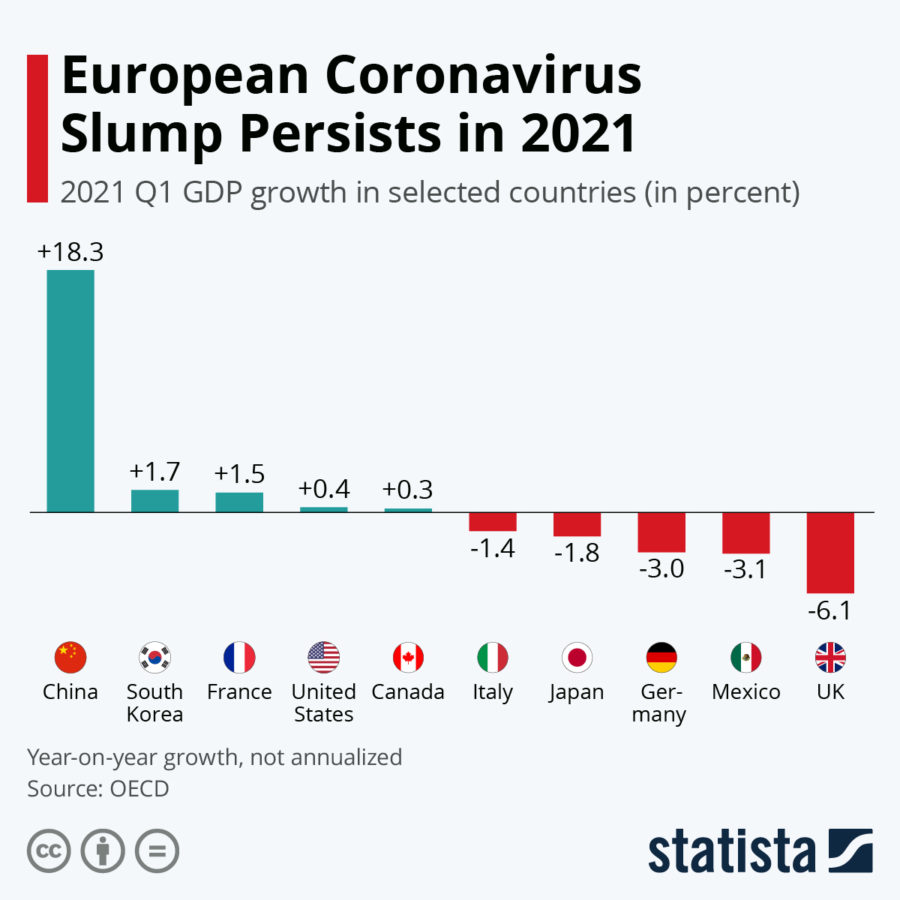
Not just this, India suffered the same loss when its exports dropped by 60.28% and imports by 58.65% in 2020. Likewise, the Chinese economy contracted by 6.8% while Japan’s shrunk by 4.8% in 2020. Apart from the developed countries, the collapsing global economy had similar, if not worse, consequences for the developing states. Being one of the hardest-hit countries by the pandemic, the economic growth of Pakistan contracted by -0.47% from 2019-2020 with the stock market losing an average of 1,500 points daily since the lockdown was imposed in March 2020.
African states, that look for tourism and travel as a source of income, are expected to lose at least $50 billion and around two million direct and indirect jobs due to COVID-19. Uganda, a major exporter of oil, gold, and agricultural crops has seen a decline of 11% in its exports, whereas, Kenya’s flower exports that generate $5 billion to $8 billion annually have fallen by 50%.
Initiative Taken to Overcome the Collapse of the Global Economy
Keeping in mind the vulnerabilities caused by the pandemic, the WTO director, Ngozi Okonjo Iweala, stated, “Keeping international markets open will be essential for economies to recover from this crisis and a rapid, global and equitable vaccine roll-out is a prerequisite for the strong and sustained recovery we all need.”
Therefore, states across the world started to look for alternatives that could minimize the damage and foster economic growth, with the safety measures being intact. Multiple policy initiatives were undertaken in collaboration with the international organizations to bring the economy back on the pre-pandemic track.
Policies Introduced by International Organizations
The World Trade Organization (WTO), in a meeting with the heads of five other international organizations, introduced a program called Aid for Trade on 11th Feb 2020. It remains successful in its call to generate $9 trillion in global economic returns with an investment of $50 billion. The purpose of this is to help the developing and least developing countries recover economically by engaging them actively in international trade.
The International Monetary Fund (IMF) undertook similar steps to support the developing countries in their fight against the collapse of the global economy by making available about $50 billion, through its rapid-disbursing emergency financing facilities for low-income and emerging market countries. Likewise, it provided a debt service relief of $740 million to twenty-nine countries across the world. To Pakistan, it alone has lent around $1.386 billion under its program to help developing countries deal with COVID-19.
Looking at the World Bank (WB), it provided yet another $8 billion to support private companies and in over 15 months has lent up to $160 billion to a hundred countries for economic recovery. The Asian Development Bank (ADB) committed around $31.6 billion in 2020 to help Asia and the Pacific region swiftly tackle the coronavirus disease and to ensure developmental changes.
Importantly, since the oil sector suffered major fallouts, therefore the Organization of Petroleum Exporting Countries (OPEC) extended its support by providing a $25 million loan to Banco Ficohsa, $70.5 million to Jordan, and $35 million to El Salvador.
The Role of States in Economic Recovery
States also undertook steps for economic recovery with the US proposing a plan known as America LEADS Act with the aim to promote economic growth while investing $350 billion in domestic manufacturing. Not just this, the Biden administration came up with the Moving Forward Act under which it will invest $1.5 trillion to rebuild the American infrastructure. Apart from that, President Biden also introduced a $1.9 trillion stimulus package called the Rescue Plan Act.
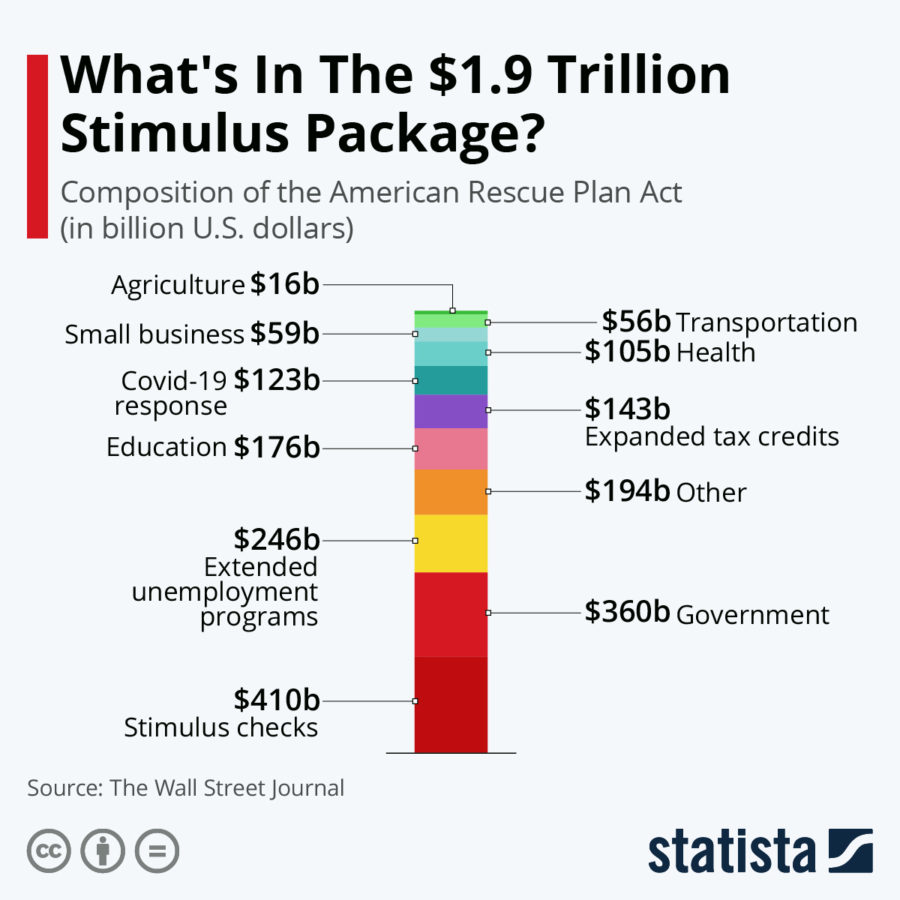
The European Commission has proposed a €750 billion stimulus plan to ensure economic recovery. A €672.5 recovery plan is set forth to get the economy back on track. Japan introduced two stimulus packages worth $2.2 trillion in 2020 with the purpose of supporting small businesses across the country. The same was done by China, which expanded the re-discounting facilities by $254 billion in 2020 to increase lending to micro and small-sized firms.
Looking at Pakistan, Prime Minister Imran Khan also took steps for recovery by introducing a fiscal stimulus package of Rs. 1.2 trillion and started the Ehsaas program to help the poor in these difficult times. This and all of the aforementioned plans initiated by either states or international organizations for economic recovery have been proven successful in getting the global economic growth back to the pre-pandemic level.
The reports by the World Bank (WB) stated that the global economy is set to expand by 5.6% in 2021, and among major economies, the US growth is projected to reach 6.8% while that of China will possibly reach 8.5%. Likewise, the global construction output will reach 5.7% in 2021 and is expected to generate $10.5 trillion by 2023. Not just this, but the real GDP in Africa is projected to grow by 3.4%, and that of Asia is said to increase by 7.3% this year. Similarly, the income of the world’s top ten oil trading companies has increased by more than $46 billion in the first quarter of 2021.
Conclusion
It is quite clear that only through cooperation and coordination can economic recovery be assured. It’s high time for states to remain united in their fight against the pandemic since only through collective efforts can the damages be averted. To make the economy recover fully and reach its pre-pandemic level, the aforementioned initiatives have to be fully implemented and multiple others have to be undertaken.
If you want to submit your articles and/or research papers, please check the Submissions page.
The views and opinions expressed in this article/paper are the author’s own and do not necessarily reflect the editorial position of Paradigm Shift.
